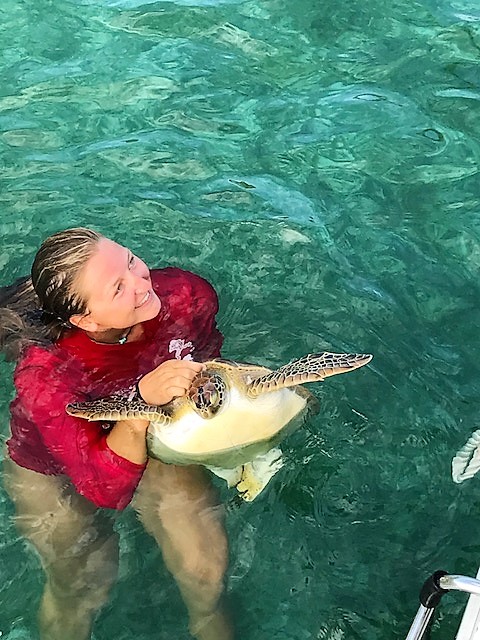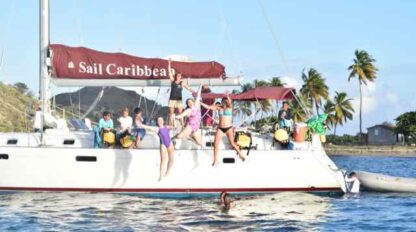Top 5 Marine Biology Schools & Colleges


Top Five Marine Biology Colleges
- University of Miami has a well established marine science program now in its 65th year and offered through the Rosenstiel School of Marine and Atmospheric Science with three different undergraduate degrees in marine studies. The Bachelor of Science degree combines marine science with biology, chemistry, geology, physics or computer science making it a double major. A Bachelor of Arts in Marine Affairs is the degree available for students interested in areas like economics, law, or economics applicable to marine affairs. There’s also a five-year combined Bachelor / Master of Arts in Marine Affairs. We’ve heard through the Sail Caribbean grapevine that undergraduates who are really involved have an amazing experience.
- University of North Carolina Chapel Hill This school’s Department of Marine Sciences offers instruction and performs biological, chemical, geological, and physical oceanography research. The department offers fundamental coursework, opportunities for practical experience with supervision, and academic minor to advanced undergraduates. It particularly emphasizes graduate training after a broad undergraduate foundation in the sciences including mathematics through calculus and statistics. At least some basic coursework in biology, chemistry, physics, and geology is also needed. Introductory courses are also offered to all undergraduates who are interested in marine sciences regardless of their major.
- Massachusettes Institute of Technology and Woods Hole Oceanographic Institution (MIT/WHOI) offer a joint, five-year doctoral program in Oceanography/ Applied Ocean Science & Engineering. The Joint Program includes these five sub-disciplinary areas: Applied Ocean Science and Engineering, Biological Oceanography, Chemical Oceanography, Marine Geology and Geophysics, and Physical Oceanography. Each is overseen by a Joint Committee made up of MIT faculty and WHOI scientists. Joint Program students have access to courses, programs and resources at one of the top oceanographic research institutions in the world (WHOI), one of the top research universities in the world (MIT), and they have the opportunity to take courses at Harvard.
- Texas A&M This Marine Biology Track offers a Bachelor of Science degree in Biology. The track focuses on marine and coastal systems for students planning careers in fisheries and aquaculture, coastal and marine management and conservation, natural history of coastal and marine organisms, aquatic science, marine animal care and rehabilitation, and outdoor recreation and public education. Emphasis is on a well-rounded education and students are encouraged to become involved with scientific research while they also concentrate on their course work.
- University of Rhode Island Between 80 and 100 students begin the B.S. Marine Biology degree program every year. The curriculum is designed for students planning to pursue marine biology at a professional level or for those who want to use their capabilities a wide range of careers. The program allows students to explore the vast world of marine biology and provides a foundation in biological sciences, chemistry, math, physics and oceanography. Study in other marine-related areas like Aquaculture and Fisheries, Marine Affairs, Marine Environmental Economics, and Marine Archaeology, History and Literature is encouraged.
Remember…so much of your undergraduate experience in marine biology or any science is determined by the opportunities you take advantage of outside of the classroom. These might include volunteering in research labs, taking initiative and doing an undergraduate research thesis, and seeking out internships. While it’s important to choose a program with a good reputation and to keep your GPA high, it’s equally (if not more) important to find ways to get hands-on, practical experience outside of the classroom while still in school.
Here’s a great resource if you want to see more marine biology schools in the US.
Special thanks to Mallory Watson, Florida Center for Ocean Science Education Excellence (COSEE Florida) Scientist and Shannon Keenon Pierson, former Head Marine Biologist for Sail Caribbean.

